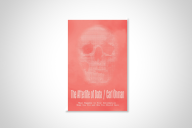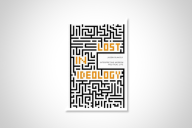You have /5 articles left.
Sign up for a free account or log in.
This year marks the 50th anniversary of The Development of Academic Freedom in the United States by Richard Hofstadter and Walter P. Metzger, published by Columbia University Press. It has long been out of print. But circumstances have had the unfortunate effect of making it timely again. Locating a copy is worth the trouble, and once you do, the book proves just about impossible to put down.
For one thing, reading it is a relief from the mingled stridencies of l'affaire Ward Churchill and of David Horowitz's latest stunt, the so-called "Academic Bill of Rights." (By the way, is it just me, or don't their media performances suggest that Churchill and Horowitz are identical twins whom ideology has separated at birth? Both have glint-eyed zealotry down pat.)
At the same time, the book is a reminder of how incredibly prolonged, complicated, and perilous the emergence of academic freedom has been. The book was commissioned in 1951 by the American Academic Freedom Project, which had a panel of advisers from numerous distinguished universities and seminaries (plus one from the Detroit Public Library), and it was published alongside a companion volume, Academic Freedom in Our Time, by the director of the project, R. M. MacIver, an emeritus professor of political philosophy and sociology at Columbia University.
It was, in brief, the closest thing to an official scholarly response to the danger of McCarthyism from the university world. The authors must have finished correcting proofs for the book around the time Joseph McCarthy lost his committee chairmanship and was censured by his colleagues in the Senate. The darkness of the time is particularly evident in MacIver's volume, with its conclusion that "the weight of authority in the United States is now adverse to the principle of intellectual freedom."
Hofstadter and Metzger, by contrast, make only a few direct references to the then-recent challenges to academic freedom. Senator McCarthy's name never appears in the book. Hofstadter traces the history of American academic life up to the Civil War, and Metzger continues it through the early 20th century -- a panoramic survey recounting scores of controversies, firings, and pamphlets wars. But recording only "the outstanding violations of freedom" would mean reducing history to "nothing but the story of academic suppression."
Condensing 500 pages into five paragraphs is a fool's errand, but here goes anyway.
The belief that only the community of scholars has the final authority to determine what counts as valid research or permissible speech has deep roots in the history of the university, going all the way back to its origins in medieval Europe. But it was extremely slow to develop in colonial and antebellum America, which had few institutions of higher learning that were anything but outgrowths of religious denominations.
In 1856, George Templeton Strong suggested to his fellow trustees of what was then Columbia College that the only way to create a great university was "to employ professors of great repute and ability to teach" and "confiding everything, at the outset, to the control of the teachers." It was an anomalous idea -- one that rested, Hofstadter indicates, on the idea that scholarship might confer social prestige to those who practice it.
As the later chapters by Walter Metzger argue, it was only with the rapid increase in endowments (and the growing economic role of scientific research and advanced training) that academics began to have the social status necessary to make strong claims for their own autonomy as professionals.
At least some of what followed sounds curiously familiar. "Between 1890 and 1900," writes Metzger, "the number of college and university teachers in the United States increased by fully 90 percent. Though the academic market continually expanded, a point of saturation, at least in the more attractive university positions, was close to being reached.... Under these competitive conditions, the demand for academic tenure became urgent, and those who urged it became vociferous." It was the academic equivalent of the demand for civil-service examinations in government employment and for rules of seniority in other jobs.
Academic freedom was not so much the goal for the creation of tenure as one of its desirable side effects. The establishment of the American Association of University Professors in 1915 "was the culmination of tendencies toward professorial self-consciousness that had been operating for many decades." And it was the beginning of the codification of rules ensuring at least some degree of security (however often honored only in the breach) for those with unpopular opinions.
Speaking of unpopular opinions, I must admit to feeling some uneasiness in recommending The Development of Academic Freedom in the United States to you.
It is a commonplace today that Richard Hofstadter was a Cold War liberal -- and a certain smug knowingness about the limitations and failures of Cold War liberalism is the birthright of every contemporary academic, of whatever ideological coloration. Furthermore, Hofstadter stands accused of indulging in "the consensus view of history," which sees the American political tradition as endorsing (as one scholar puts it) "the rights of property, the philosophies of economic individualism, [and] the value of competition."
I don't know anything about Walter Metzger, but he seems to share much of Hofstadter's outlook. So it is safe to dismiss their book as a mere happy pill designed to induce the unthinking celebration of the American way of life. No one will think the worse of you for this. Besides, we're all so busy nowadays.
But if you do venture to read The Development of Academic Freedom, you might find its analysis considerably more combative than it might at first appear. Its claim is not that academic freedom is a deeply rooted part of our glorious American heritage of nearly perfect liberty. The whole logic of its argument runs very much to the contrary.
Someone once said that the most impressive thing about Hofstadter's Anti-Intellectualism in American Life (1963) was that he managed to keep it to just one volume. The deepest implication of his work is that academic freedom does not, in fact, have very deep roots even in the history of American higher education -- let alone in the wider culture.
On the final page of The Development of Academic Freedom in the United States, his collaborator writes, "One cannot but be but be appalled at the slender thread by which it hangs.... one cannot but be disheartened by the cowardice and self-deception that frail men use who want to be both safe and free." It is a book worth re-reading now -- not as a celebration, but as a warning.








